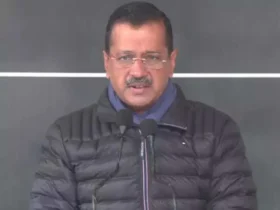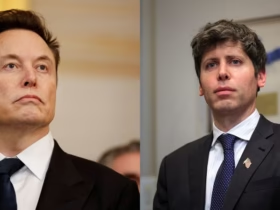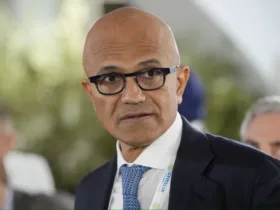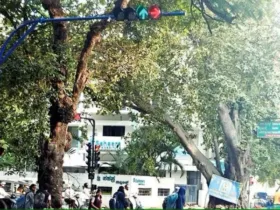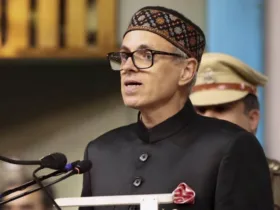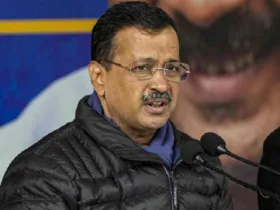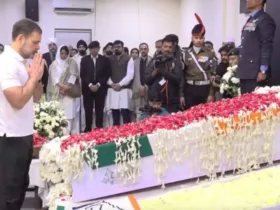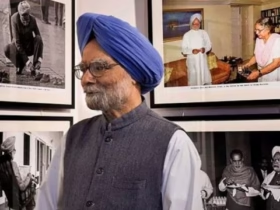PM Modi’s upcoming visit to Kuwait on December 21-22 is a historic milestone in India’s diplomatic outreach to the Gulf nations. This visit marks the first time in 43 years that an Indian Prime Minister will travel to Kuwait, underscoring the increasing importance of bilateral relations between India and the Gulf Cooperation Council (GCC) country. Kuwait holds a strategic place in India’s economic, cultural, and geopolitical framework, serving as a key energy partner and home to a significant Indian expatriate community.
While there were expectations of PM Modi visiting Saudi Arabia during the same timeframe, logistical delays in finalizing dates have pushed that visit to early next year. Kuwait, however, remains an essential destination for the Indian PM Modi as it is the only GCC nation he had yet to visit during his tenure. This trip follows an invitation delivered to PM Modi earlier this month by Kuwait’s Foreign Minister Abdullah Ali Al-Yahya, further cementing the growing relationship between the two nations.
The Historical Context of India-Kuwait Relations
India and Kuwait share a long history of trade, cultural exchange, and mutual cooperation that predates the formation of modern nation-states. India was one of the first countries to establish diplomatic ties with Kuwait after it gained independence in 1961. The relationship, however, reached new heights over the decades, particularly with the growing presence of the Indian community in Kuwait and increasing bilateral trade.
PM Modi’s visit will be the first by an Indian Prime Minister since 1981, when then-Prime Minister Indira Gandhi visited the Gulf country. Given the changes in global geopolitics and the economic interdependence between the two nations, this visit comes at a crucial time, reaffirming India’s commitment to strengthening its ties with the Gulf region.
Kuwait currently holds the presidency of the Gulf Cooperation Council (GCC), a bloc of six countries that play a significant role in the geopolitics and economy of the West Asian region. Strengthening bilateral ties with Kuwait will not only reinforce India’s relationship with a key Gulf nation but also enhance its engagement with the broader GCC bloc.
Economic and Energy Cooperation
Kuwait is a vital economic partner for India, particularly in the energy sector. It is one of India’s most reliable suppliers of crude oil and Liquefied Petroleum Gas (LPG), both critical to meeting India’s growing energy demands. Kuwait’s energy resources play a significant role in maintaining the balance of India’s energy security, with oil imports from Kuwait accounting for a substantial share of India’s total energy imports.
With India being one of the world’s fastest-growing economies, its energy needs are expected to increase exponentially in the coming years. During PM Modi’s visit, energy cooperation is likely to be a key agenda item. Discussions may focus on ensuring a steady supply of crude oil and LNG, exploring investment opportunities in the oil and gas sector, and fostering collaboration in renewable energy initiatives as India looks to diversify its energy portfolio.
The Indian Diaspora in Kuwait
A significant aspect of India’s relationship with Kuwait is the Indian diaspora, which forms one of the largest expatriate communities in the Gulf country. Over one million Indians reside in Kuwait, contributing significantly to its economy and society. Indian professionals, including doctors, engineers, teachers, and skilled workers, play a pivotal role in various sectors, including healthcare, construction, and education.
The Indian community is also a bridge that strengthens people-to-people ties between the two nations. Remittances sent by Indian workers in Kuwait contribute significantly to India’s economy, while their presence reflects the trust and goodwill shared between the two countries. During his visit, PM Modi is expected to engage with the Indian diaspora, acknowledging their contributions and addressing any concerns regarding labor rights, welfare, and consular services.
Bilateral Cooperation: Trade and Investment
India and Kuwait share robust trade relations, with bilateral trade amounting to approximately $12 billion annually. While crude oil remains the primary commodity imported by India, there is significant potential to diversify trade into other sectors, such as agriculture, pharmaceuticals, technology, and education.
During the recent visit of Kuwait’s Foreign Minister Abdullah Ali Al-Yahya to India, both nations signed a Memorandum of Understanding (MoU) to establish a Joint Commission for Cooperation (JCC) at the level of foreign ministers. The JCC will serve as an umbrella mechanism to strengthen bilateral ties comprehensively, focusing on areas like:
- Trade and Investment: Promoting business opportunities, facilitating investments, and fostering economic partnerships.
- Technology and Education: Enhancing cooperation in technology transfers, digital infrastructure, and educational exchanges.
- Agriculture: Exploring avenues for agricultural exports from India to Kuwait, including food security initiatives.
- Security and Defense: Strengthening security cooperation, including combating terrorism, cyber threats, and maritime security in the Gulf region.
- Culture: Promoting cultural exchanges to strengthen people-to-people ties.
The JCC mechanism will also oversee the establishment of new joint working groups to monitor progress and implementation of initiatives in these areas, while strengthening existing ones, particularly in hydrocarbons, healthcare, and consular matters.
Geopolitical Significance and West Asia Stability
PM Modi’s visit to Kuwait also comes at a time of significant geopolitical developments in the West Asian region. The ongoing Israel-Palestine conflict and its spillover effects have created a complex and sensitive situation. India has consistently called for a ceasefire in Gaza and emphasized the importance of ensuring peace, security, and stability in the region.
Kuwait, as a leading member of the GCC, hosted a summit on December 1, where it called for an immediate ceasefire and urged the international community to provide humanitarian aid to affected civilians. India’s support for a peaceful resolution aligns with Kuwait’s stance, and discussions during PM Modi’s visit are expected to address shared concerns regarding regional security and stability.
Both countries recognize the importance of maintaining peace in the region, given its impact on energy security, trade, and the well-being of expatriate populations. As a prominent player in global geopolitics, India’s engagement with Kuwait will further bolster its role as a stabilizing force in West Asia.
Strategic Outcomes of the Visit of PM Modi
PM Modi’s visit to Kuwait is expected to yield several strategic outcomes, including:
- Strengthened Energy Partnership: Discussions on ensuring a reliable and steady supply of oil and gas to India, along with potential investments in the energy sector.
- Enhanced Trade and Investment: Agreements to diversify trade and promote economic partnerships in emerging sectors.
- Empowerment of the Indian Diaspora: Initiatives to address concerns of Indian workers, improve labor welfare, and enhance consular services.
- Cultural and People-to-People Ties: Efforts to foster cultural exchanges and build stronger connections between the citizens of both nations.
- Regional Stability and Cooperation: Collaborative efforts to promote peace, security, and humanitarian assistance in West Asia.
Conclusion
PM Modi’s visit to Kuwait on December 21-22 marks a significant step in India’s diplomatic and economic engagement with the Gulf region. As the first Indian Prime Minister to visit the country in 43 years, this trip symbolizes a renewed focus on strengthening bilateral relations, enhancing energy cooperation, and fostering regional stability. Kuwait’s role as a key energy supplier, its presidency of the GCC, and the presence of a vibrant Indian diaspora make this visit strategically and economically important for both nations.
The establishment of the Joint Commission for Cooperation and ongoing discussions on trade, investment, and regional security are expected to pave the way for a stronger and more comprehensive partnership. By deepening ties with Kuwait, India not only strengthens its position in the Gulf but also reinforces its role as a key stakeholder in promoting peace, development, and stability in the broader West Asian region.


